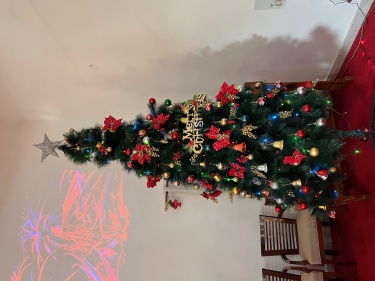
It is Christmas, but my heart is far away from the celebrations of VIPs of the national capital, and the trappings of power, to a family I encountered in the Bastar region of Chhattisgarh.
Forced out from their home for holding fast to their faith in Christ, their story echoes the tale of the Nativity – a family seeking shelter, rejected by others, but clinging to their beliefs.
We were able to offer them immediate help, but how do we help reverse the disturbing pattern that spans all seven districts of Bastar region: Kanker, Narayanpur, Kondagaon, Bijapur, Dantewada, Jagdalpur, and Sukma, and perhaps others of whom we are not aware.
The evil transformation happening in these regions is systematic and deliberate.
Powerful Right-wing organizations have rapidly infiltrated every level of local governance, from schoolteachers to panchayat workers, establishing a network of activists in virtually every village.
What began as the feudal politician Judeo’s "ghar wapsi" under the shadow of arms in the early 2000s, has evolved into a sophisticated campaign of returning tribals to a supposedly "tribal faith” which even to a common eye is clearly a highly Hindutvaized apparition.
Despite the Church's century-and-a-half presence in these regions, these organizations have successfully created deep divisions within tribal communities, convincing many that their traditional identity is safe only if aligned with majority religion.
The transformation is striking - tribal communities that historically never observed Hindu festivals now enthusiastically participate in everything from major religious events to minor Gangetic plains observances such as the road journeys of the Kanwar yatra.
The cadres working with these groups patently do not want for money. They are well-funded and are generous in attracting simple village folk with money and alcohol.
The agenda is clear: to divide tribal society, mobilise them into a pushback against the Church, to reshape of the tribal identity as an offshoot of the Sanatan Dharma.
This immediately robs the Tribal of her or his core identity as a member of an indigenous people who are the original inhabitants of this landmass. In effect, it also robs them of their political agency and their rights over their land, forests, waters and underground mineral wealth.
The forces engineering this situation appear to march in lockstep with corporate interests eyeing the resource-rich tribal lands.
In Uttar Pradesh, the situation speaks for itself: 110 innocent Christians remain behind bars for praying at a sickbed or celebrating a baby’s birthday. Countless churches have permanently closed their doors, unable to withstand relentless harassment from both organized groups and authorities.
In Odisha, following recent political shifts, we see a sharp spike in incidents against Christians – a pattern all too familiar to those who remember past seasons of persecution.
In India’s Northeast, Manipur continues to bleed as sophisticated weapons and drones amplify ancient divisions between Kukis and Meiteis. Each passing day brings new dimensions of suffering to communities already torn apart by violence.
Beyond our borders, in Gaza, children die while we engage in abstract discussions about “just war” even as the media blanks out arms deals and big power strategies. The entry of artificial Intelligence, drones and micro bombs have made the world just that much more insecure.
As followers of Christ, we cannot be merely pro-Israel or pro-Palestine. We must be pro-Israel AND pro-Palestinian, and ultimately, pro-Jesus. The way forward is clear: we must advocate for all life, which means this war must end.
Yet it was into such a world – one marked by political manipulation, social engineering, and raw power – that Christ first came. The Christmas story has always been more than a tale of peaceful shepherds and singing angels. It is the story of God entering a world where powers and principalities work in shadow and light, where families face displacement, where faith comes at great cost.
The parallels between the first Christmas and our present reality are striking. Mary and Joseph found no welcome in Bethlehem. Christian families today find themselves pushed from their communities. The Holy Family fled political persecution to Egypt, and believers today face systematic pressure to abandon their faith. When Herod manipulated political power for his ends, he foretold today’s sophisticated methods of social and religious coercion.
But Christmas declares that God is not blind to such machinations. Emmanuel – God with us – means that divine love has entered our broken world, not as a distant observer but as an active participant in human suffering. When Christ chose to be born in a manger, He aligned Himself with all who face exclusion. In His flight to Egypt, He identified with all refugees. In His persecution, He stood with all who suffer for their faith.
As we celebrate His birth, let us begin where all Christian action must start - in prayer.
We invite you to join us in focused prayer for our persecuted brothers and sisters across India, for peace in Manipur, and for an end to the killing of children in Gaza. But prayer must move us to action.
Christmas calls us to a dual response. First, to remember that the light shines in the darkness, and the darkness has not overcome it. Second, to become bearers of that light, working deliberately and wisely for justice and reconciliation in our divided land.

Let us embrace the full meaning of Christmas in these challenging times. Whether in the villages of Bastar, the conflict zones of Manipur, or the war-torn streets of Gaza, let us be advocates for the persecuted, voices for the voiceless, and instruments of peace. Consider reaching out to displaced Christian families through your local church, learning about their needs, and finding ways to support them.
The Prince of Peace came not to a peaceful world, but to a world desperately in need of peace. As we witness systematic persecution in our states and suffering beyond our borders, we hold fast to this truth: the same God who entered human history through a humble manger continues to work in our world today. May this Christmas strengthen our resolve to follow the example of the One whose birth we celebrate – Jesus Christ, our Emmanuel, our Prince of Peace.
Rev. Vijayesh Lal is the General Secretary of the Evangelical Fellowship of India.




